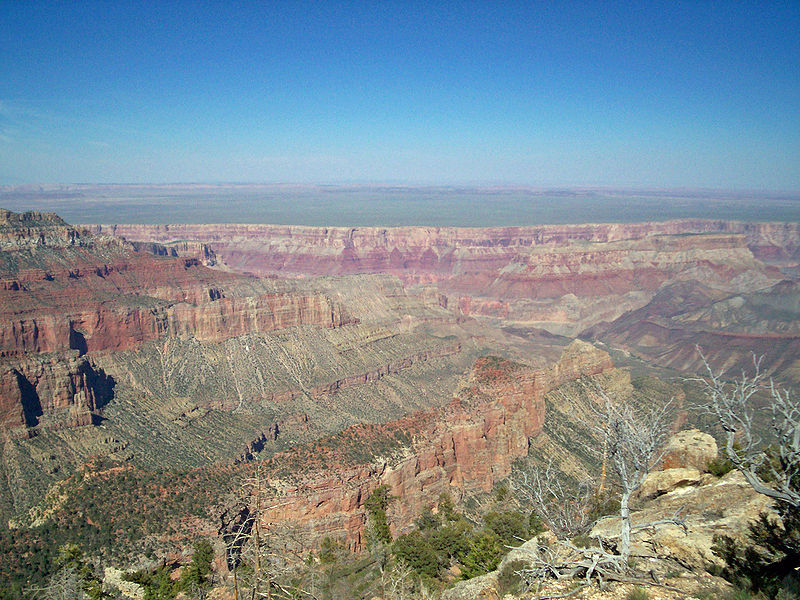
Grand Canyon National Park is the United States' 15th oldest national park. Named a UNESCO World Heritage Site in 1979, the park is located in Arizona. The park's central feature is the Grand Canyon, a gorge of the Colorado River, which is often considered one of the Seven Natural Wonders of the World. The park covers 1,217,262 acres (1,902 sq mi; 4,926 km2) of unincorporated area in Coconino and Mohave counties.

Grand Canyon National Park was named an official national park in 1919, but the landmark had been well known to Americans for over thirty years prior. In 1903, President Theodore Roosevelt visited the site and said: "The Grand Canyon fills me with awe. It is beyond comparison—beyond description; absolutely unparalleled throughout the wide world... Let this great wonder of nature remain as it now is. Do nothing to mar its grandeur, sublimity and loveliness. You cannot improve on it. But what you can do is to keep it for your children, your children's children, and all who come after you, as the one great sight which every American should see."
Despite Roosevelt's enthusiasm and his strong interest in preserving land for public use, the Grand Canyon was not immediately designated a national park. The first bill to create Grand Canyon National Park was introduced in 1882 by then-Senator Benjamin Harrison, which would have made Grand Canyon National Park the nation's second, after Yellowstone National Park. Harrison unsuccessfully reintroduced his bill in 1883 and 1886; after his election to the presidency, he established the Grand Canyon Forest Reserve in 1893. Theodore Roosevelt created the Grand Canyon Game Preserve by proclamation in 1906 and Grand Canyon National Monument in 1908. Further Senate bills to establish the site as a national park were introduced and defeated in 1910 and 1911, before the Grand Canyon National Park Act was finally signed by President Woodrow Wilson in 1919. The National Park Service, established in 1916, assumed administration of the park.
The creation of the park was an early success of the conservation movement. Its national park status may have helped thwart proposals to dam the Colorado River within its boundaries. (Later, the Glen Canyon Dam would be built upriver.) In 1975, the former Marble Canyon National Monument, which followed the Colorado River northeast from the Grand Canyon to Lee's Ferry, was made part of Grand Canyon National Park. In 1979, UNESCO declared the park a World Heritage Site.
In 2010, Grand Canyon National Park was honored with its own coin under the America the Beautiful Quarters program.



